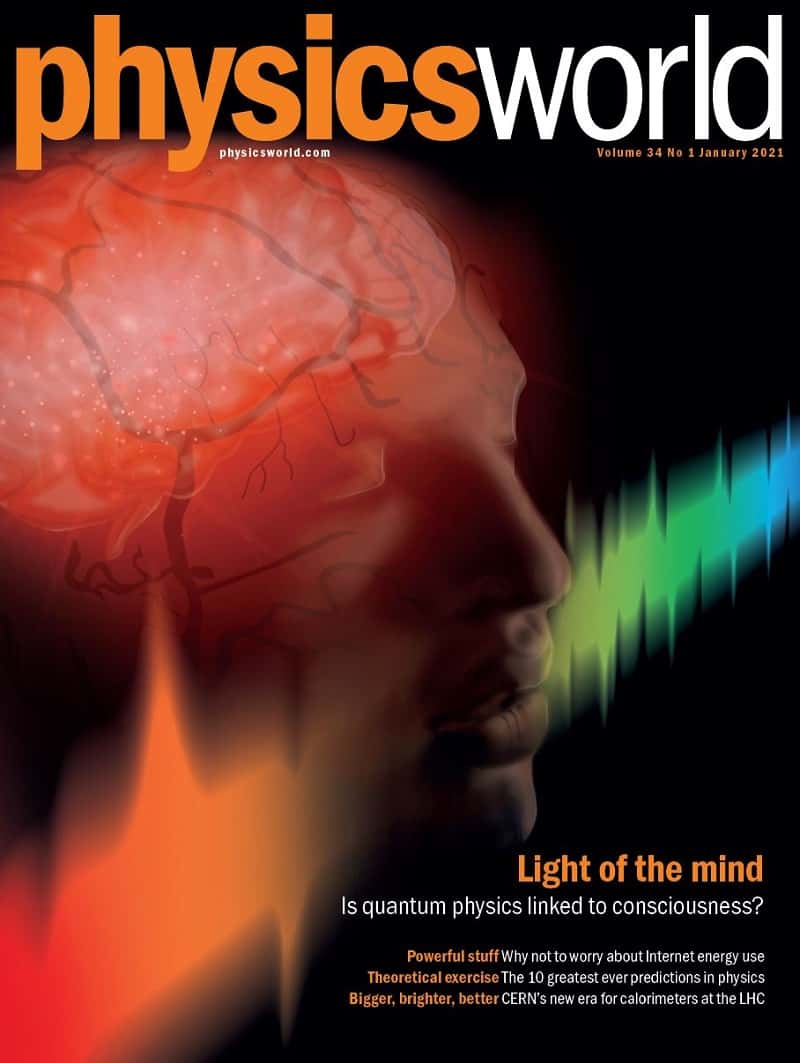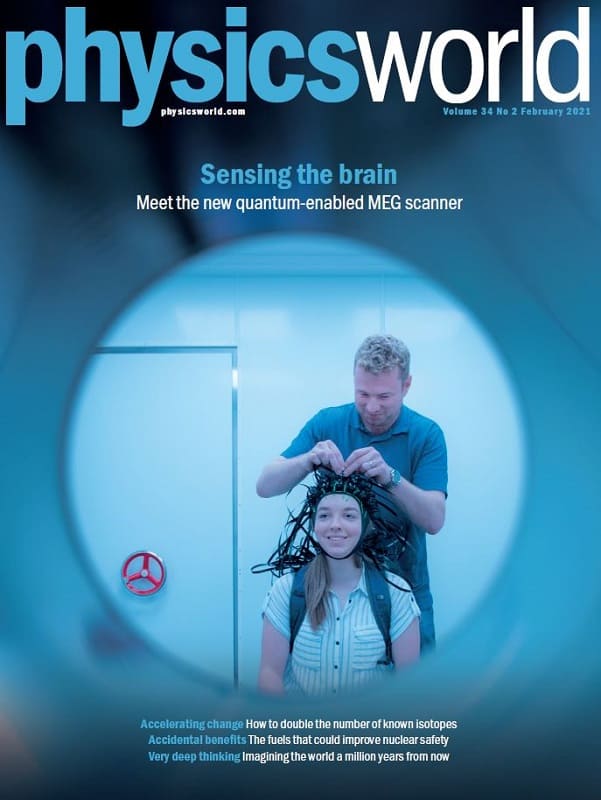All about a new quantum-enabled brain-imaging technique, plus nuclear fuels 10 years after Fukushima and how to create thousands of rare isotopes
In most types of medical imaging, the name of the game is to find out about the internal structure of the body, looking for growths, tumours or other abnormalities. But for many illnesses, simple structural information is not enough: you need to know how an organ functions too.
That’s particularly important when assessing disorders of the brain – such as epilepsy, dementia or problems with mental health – where a structural image, no matter how detailed, often looks “normal”, even in patients with profound difficulties.
One method of imaging brain function is magnetoencephalography (MEG), which traditionally use superconducting quantum interference devices (SQUIDs) to measure the tiny magnetic fields created from neuronal assemblies. Trouble is, these devices have to be cooled to –269 °C, which is one reason why MEG scanners are so expensive.
In the February 2021 issue of Physics World magazine, Hannah Coleman and Matt Brookes from the University of Nottingham in the UK explain how “optically pumped magnetometers” could allow MEG to be more widely used. These quantum-enabled magnetic are as sensitive as SQUIDs – but don’t need any fiddly cryogenics.
If you’re a member of the Institute of Physics, you can read the whole of Physics World magazine every month via our digital apps for iOS, Android and Web browsers. Let us know what you think about the issue on Twitter, Facebook or by e-mailing us at pwld@ioppublishing.org..
For the record, here’s a run-down of what else is in the issue.
• Radio offers view of gravitational waves – New limits on the size of primordial gravitational waves have been set that are several orders of magnitude lower than the most sensitive laboratory experiment, as Edwin Cartlidge reports
• Physicists welcome Brexit deal – While there is relief that the UK has reached a deal with the European Union, the true impact of the agreement will be difficult to unravel given the ongoing pandemic, as Michael Allen reports
• Protect the scientists of tomorrow – Karel Green says that funders must support all PhD students due to the devastating effects on research caused by the COVID-19 pandemic
• Let’s go green – James McKenzie believes the UK government’s ambitious 10-point-plan for a “green industrial revolution” can deliver – if we put our collective minds to the problem
• Very deep thinking – Robert P Crease discovers why a nuclear-waste programme in Finland can help us to envisage the world a million years from now
• Quantum sensing the brain – Novel technology in healthcare based on fundamental physics saves millions of lives every year but while these machines have revolutionized medicine, the next generation must meet even greater challenges. Hannah Coleman and Matt Brookes are hoping that the University of Nottingham’s new quantum-enabled MEG scanner will herald a new dawn in the study of human brain function
• Improving nuclear fuel safety – A decade after the Fukushima disaster, Michael Allen investigates claims from academia and industry that the next generation of nuclear fuels could reduce the risk of similar accidents occurring ever again
• The beams at the edge of physics – Creating a new cutting-edge accelerator isn’t cheap or easy. But as Kit Chapman discovers, the upcoming Facility for Rare Isotope Beams (FRIB) in Michigan promises great things for nuclear physicists especially those with applications in mind

Happy new year! The January 2021 issue of Physics World magazine is now out
• Rudiments of reality – Philip Ball reviews Fundamentals: Ten Keys to Reality by Frank Wilczek
• Reinventing the science museum – Margaret Harris reviews Idea Colliders: the Future of Science Museums by Michael John Gorman
• Building a quantum powered future – Quantum physicist and chief executive of Oxford Quantum Circuits Ilana Wisby talks to Tushna Commissariat about deep tech, entrepreneurship and quantum technologies of the future
• Islands in the stream – Logan Chipkin on how other galaxies were discovered
